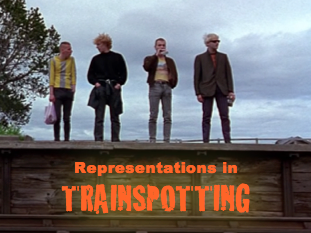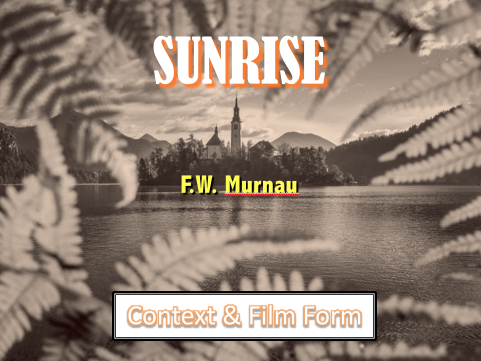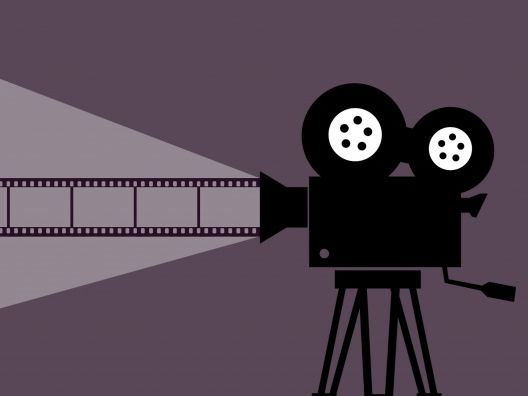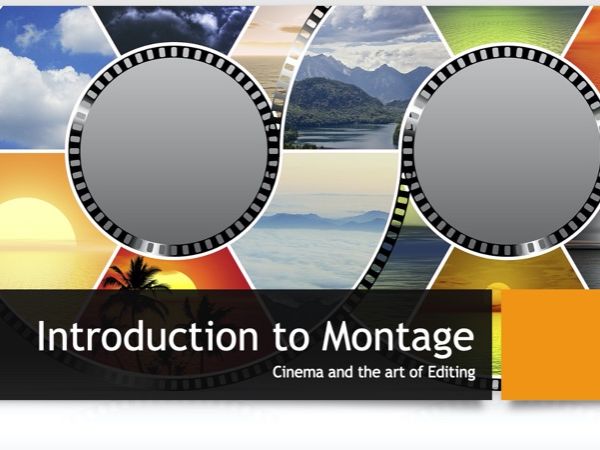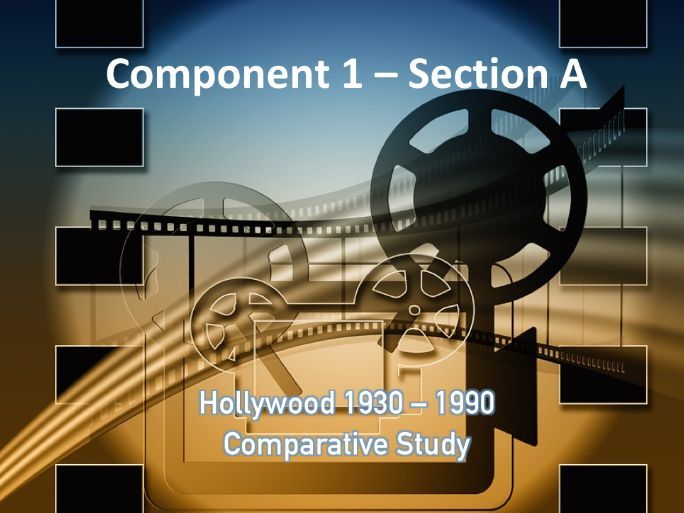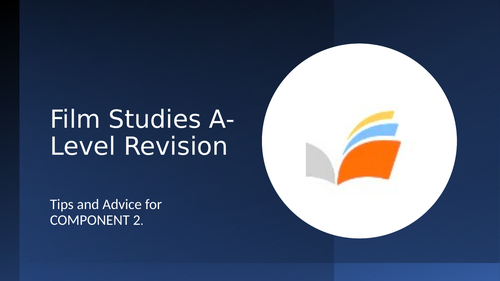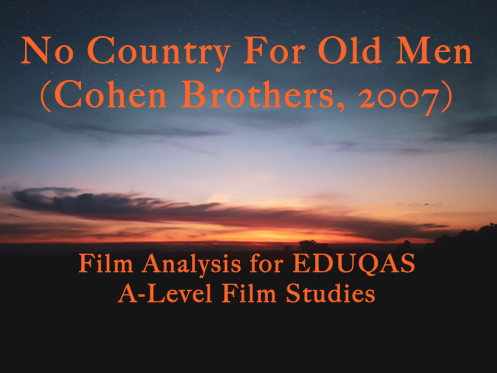57Uploads
12k+Views
2k+Downloads
All resources

REPRESENTATIONS IN *TRAINSPOTTING*
This is a set of notes to help for revision of TRAINSPOTTING for film studies A-Level candidates.
Representations analyzed include:
Nationality
Class
Gender
Age

EDUQAS FILM STUDIES A-Level - Silent Cinema Sunrise (F.W. Murnau)
This 39-slide fully interactive presentation ends with exam questions and guidance from the EDUQAS boards, as well as offering historical context and aesthetic characteristics of German Expressionist cinema, with special focus on SUNRISE (FW Murnau).
This presentation is excellent for exam revision and conveys the key talking points for this section of the **Film Studies **Component 2 paper.

Do Documentaries Tell Stories? - starter exercise
This is a quick starter worksheet to get students to begin a discussion on the similarities and differences between documentaries and narrative (fiction) films. They may be surprised how many conventions and techniques overlap. This can help to stimulate discussion of what makes a film a documentary, since documentaries can be harder to distinguish from narrative films than one might think.

Movie-Themed Treasure Hunt
This is an activity for team or pairs from Years 11+ and involves an active search for the answers, which are interdependent, so that one answer leads to another as students progress.
The game could be set up as a race to the finish line. Depending upon the research abilities and cinematic specialist knowledge of the team, the game could take anywhere from 15 minutes to 45 minutes to complete.
Included in this resource pack is: a treasure hunt ‘map’, two styles of answer sheets for students/teams, and an answer key for teachers.

Covid 19, Change and Technology: THE MACHINE STOPS
E.M. Forster’s 1909 short story about a future dystopia provides an excellent stiumlus to explore many issues that impact young peoples’ lives in 2021.
THE MACHINE STOPS (1909) paints a picture that allows us to reflect on a multitude of topical questions:
how far has technology helped us to advance, individually and socially?
how does technology impact our relationships to our bodies and senses?
how does technology affect our relationship with the natural world?
how do metaphor, irony and allegory work to convey social messages?
how does technology impact our ability to gain knowledge of what is true and to separate fact from fiction?
Forster’s prophetic short story was extremely prescient in its vision of a future society in which people would be confined indoors, socially distanced and isolated even from their closest kin, and in which all connection to people and the world is mediated through a “machine”. What happens when Kuno decides he wants to escape the machine and to live by his own wits?

Cinema and the Art of EDITING
For both film and media studies, this 14-slide full colour, interactive PowerPoint presentation provides a brief introduction to the basics of film editing (montage).
The six elements of an edit are introduced, as well as a discussion of pace, style of editing and parallel editing (cross cutting).
Helpful links to YouTube videos provide illustrative examples of the terminology presented.
The Presentation - along with Q&A and examples - should fill a 1 hour lesson.

Post-Screening Discussion Questions - Film Studies - Raise the Red Lantern (1991)
**Raise the Red Lantern **(Dir. Zhang Yimou, 1991, China) is an excellent example of a film that deconstructs how
patriarchal power works and in this sense it is a film that is empowering for women, despite being a narrative *about *
disempowered women.
The film has also been discussed as a metaphor for Chinese state power and therefore also functions a a subversive political commentary.
With beautiful cinematography and composition throughout, this film is also a study in cinematic perfection, with mise-en-scene used to great symbolic effect. The film could be studied just as an excellent example of mise-en-scene.

Spectatorship Test
This 10 question test is a great accompaniment to the Specatatorship PowerPoint Presentation Resource for teaching the EDUQAS A-Level Film Studies Component 1, Section B. Contemporary American Film.
Topics covered include: hypodermic needle theory, active versus passive spectatorship, archetypes, intertextuality, viewing contexts, polysemy and oppositional readings of films.
The test is best used for Year 12 or Year 13 film studies but can also be helpful for Media Studies teachers vis-a-vis spectaorship and ideology.

SUNRISE (FW Murnau, 1927) -- Test
Basic Comprehension questions - Test - for SUNRISE, Eduqas A-Level Film Studies.

What is THE BECHDEL TEST?
A brief explanation of the Bechdel Test and what it measures. The test is widely regarded as a measure of female representation in film, and provides a useful ‘rule’ by which representation of women / girls can be measured.

Fish Tank (Andrea Arnold, UK, 2009) HOMEWORK QUESTIONS
Useful for the EDUQAS Film A-Level.
12 questions covering representations, class, ideology, narrative and ‘the female gaze’.

Director Andrea Arnold - Her Auteur Signature
Studying FISH TANK (UK, 2009) for the Film or Media A-Level?
Or perhaps you are just looking for a film with empowered female leads?
Maybe you want to think about the concept of an ‘auteur’ director?
This resource also gives some tips for studying ideology in films.
Suited to 14+ age groups, this resource can be used for the EDUQAS Film Studies A-Level or AS Level, or just as an introduction to the concept of ‘Auteur’ directors or ideology.

Winter's Bone - binary analysis
This chart helps to understand how the narrative conflicts in Winter’s Bone are related to different ideological positions, with respect to values such as community versus individual rights, ‘omerta’ versus whistleblowing, and ‘honour’ versus responsibility/ humanity.

Winter's Bone Ideology Graphic
This Graphic provides an overview of the key ideological issues for the film Winter’s Bone. There are other possibilities for the A-Level Film Studies Exam (such as gender or class) but this graphic provides possibly the best understanding of the more subtle political ideologies within the narrative and their contexts than the more ‘identity’ based approach to ideology.
This graphic places the film within its concurrent social and political contexts, and these bear upon how the film will be** ‘de-coded’** (vis. Stuart Hall’s theory) by viewers, depending upon the background knowledge they bring to their viewing experience. Therefore, this resource provides possibilities for** spectatorship issues** as well as ideology.

EDUQAS Film Studies A-Level , Hollywood 1930 – 1990 Comparative Study (REVISION)
This 14 slide, fully-animated presentation involves key revision in preparation for Component 1, Section A: Hollywood 1930 – 1990 Comparative Study. Focus is on the auteur debate and industrial contexts, with other factors such as gender representation and genre also considered. The presentation involves interactive exercises and should fill one lesson.

EDUQAS A Level FILM STUDIES: Component 2 Revision
This 37 full colour slide show (PowerPoint Presentation) provides an overview of the Component 2 - Global Cinema exam. It offers many detailed tips for candidates, and supports their work on the following films: Mustang (Erguven), Timbuktu (Sissako), Sisters in Law (Longinotto), Sunrise (Murnau) and Fallen Angels (Wong).
There are interactive questions allowing for students to get involved and to be fully engaged for an entire two hour lesson.

EDUQAS FILM STUDIES A LEVEL REVISION, Component 1C. British Films
This is a fully animated, full colour interactive 32 slide Power Point Presentation.
It provides an excellent lesson plan for a two hour lession, and includes four practice questions from past papers, with lots of suggestions on how to tackle 'ideologies’ questions. It suggests some binary analyses of the films Trainspotting and Fish Tank and provides some indicative content tips from the exam boards.
Much of the content is based on advice from EDUQAS Film Studies examiners.

No Country For Old Men Analysis (A-Level Film & Media Studies)
This fully animated, interactive presentation is comprised of 43 full colour slides. The analysis of narrative, formal elements and spectatorship aims at preparing film studies students for the A-Level Exam, (EDUQAS FIlm Studies, Component 1B - American Cinema).
It is equally useful for any film or media course. Elements of narrative, as well as camera, sound design, mise-en-scene and lighting are all analysed in this comprehensive study of this modern Western gothic film.
This presentation is designed to form the basis for a full one hour lesson, and could be extended to further sessions.
Bundle

EDUQAS FILM Spectatorship Bundle
This collection of resources provides a range of
classroom ready resrouces to tackle the FIlm Studies A Level Component 1B. - Spectatorship Topic.
The Films referenced and used as examples include No Country for Old Men, Carol and Winter’s Bone. There is also an introductory PowerPoint with an overview of what examiners mean by ‘Spectatorship’ and clear guidance on how to apply it to specific films.
There is a Test included as well.

Trainspotting - Ideologies
For the** EDUQAS Film Studies A Level** Component 1C. British Films, this resource provides a great exam revision preparation lesson. This is a 24 slide PowerPoint including interactive activities that allow students to reflect on ideological meanings and to share their ideas.
The resource is focused on the EDUQAS A Level examination, and includes past questions to guide pupils in how to craft good answers targeted on ideological analysis. Includes key prompts and talking points for ideology and a sample binary analysis.

